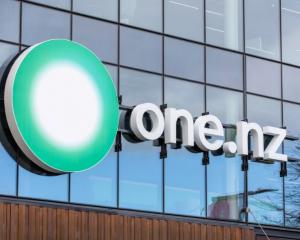British confectionery maker Cadbury was last night expected to have conceded defeat in its battle to remain independent by recommending the 12 billion ($NZ27 billion) takeover offer from United States rival Kraft.
International media organisations were yesterday reporting the 186-year-old chocolate maker gave up its attempt to stave off the takeover after a large foreign shareholder joined hedge funds in indicating it would accept an improved offer from Kraft.
A rival bid expected from Hershey did not materialise.
Cadbury's board, led by chairman Roger Carr, was expected to announce its decision to recommend the revised 850p a share offer to all shareholders through a statement to the British stock exchange.
Although a board recommendation is not binding, it is highly unusual for a company to resist a hostile takeover once its management has capitulated.
The Guardian reported online that the confectionery giant joined a list of British industrial names to have fallen to foreign takeovers in similar circumstances in recent years.
More than 50 leading companies had gone including BAA, Boots, Cazenove, Corus, ICI, Jaguar Land Rover, P&O, Pilkington and Scottish Power.
Until now, Cadbury had fought a public campaign to preserve its independence, attracting support from Lord Mandelson, the United Kingdom business secretary, who warned Kraft to expect "huge opposition" from the Government if it wanted to make a "fast buck" by buying Cadbury.
Lord Mandelson's intervention is understood to have rattled Kraft's chief executive Irene Rosenfeld who was recently in London meeting shareholders.
Ultimately, the US company chose to negotiate a raised offer after calculating that the political risk was manageable.
Cadbury unions have warned that up to 30,000 jobs would be put at risk by the deal as Kraft would be weighed down by about 22 billion in debt.
Kraft has a record of aggressive cost-cutting and unions said that between 2004 and 2008 it shed 19,000 jobs and closed 35 sites to help reduce its debt.
The New York Times reported that from the beginning, speculation mounted among investors that another bidder would step in, forcing Kraft to raise its original offer.
Representatives for Cadbury had held talks with Hershey, the company it viewed as a preferable merger partner.
Hershey had been waiting for Kraft to reveal its final offer on Tuesday before its final decision on the bid but analysts said that Hershey would most likely be unable to top the much larger Kraft in a bidding war.
Other potential suitors, including Nestle, of Switzerland, and Ferrero, of Italy, dropped out.
US billionaire investor Warren Buffett, whose Berkshire Hathaway is Kraft's largest shareholder, delivered an unusually public admonishment, warning Kraft to avoid over-diluting its shareholders by issuing too many new shares.











